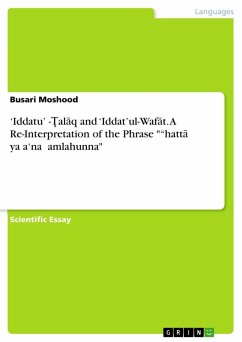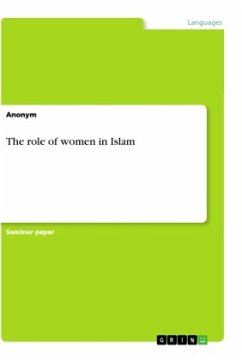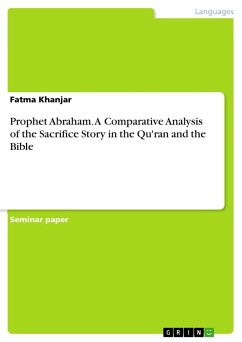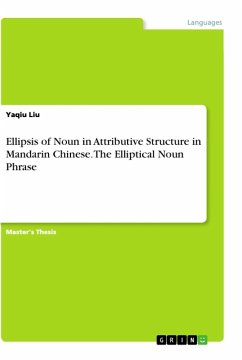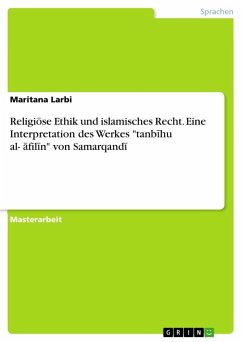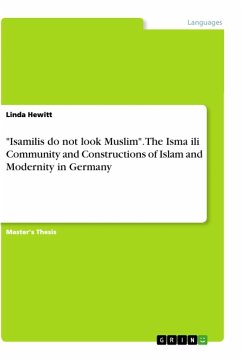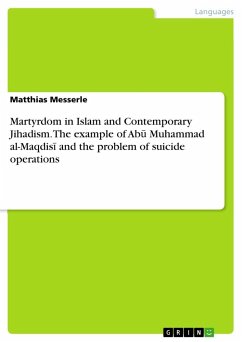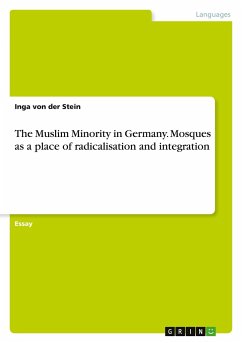Scientific Essay from the year 2017 in the subject Orientalism / Sinology - Islamic Studies, , language: English, abstract: The observance of 'Iddah is a phenomenon which comes in Islam as an attendant result of divorce and death of one's husband. As divorce and death occur from time to time, the observance of 'Iddah also becomes a re-occurring issue for debates among scholars and Muslims across times and climes.It is on this basis that the paper set out to interrogate the maqsad (rationale) behind the observance of 'Iddah after divorce or the death of one's husband. Though the periods for the observance of both 'Iddatu' -Talaq and 'Iddat'ul-Wafat have been categorically stated in the Qur'an, there is a conditional phrase which may likely utter these prescribed periods as contained in the Qur'an. This phrase, as examined in this paper is simply put as "hatta yada'na hamlahunna" and translated as "until delivery". This phrase, the application and the interpretation of which formed the background of this paper was critically examined with a view to establishing whether or not pregnancy or its delivery is a factor considerable to terminate the observance of 'Iddah unconditionally. From the re-interpretation and cross-examination of this paper, it was argued that pregnancy or delivery is a condition which bestows the mercy of extension on the observance of 'Iddah rather than being a phenomenon which abruptly brings it to a close. The paper therefore concluded, going by referenced instances from the Sunnah and other sources of Shari'ah, that the prescribed periods of 'Iddah in the Qur'an are the minimum required durations which can be extended by pregnancy.
Hinweis: Dieser Artikel kann nur an eine deutsche Lieferadresse ausgeliefert werden.
Hinweis: Dieser Artikel kann nur an eine deutsche Lieferadresse ausgeliefert werden.

